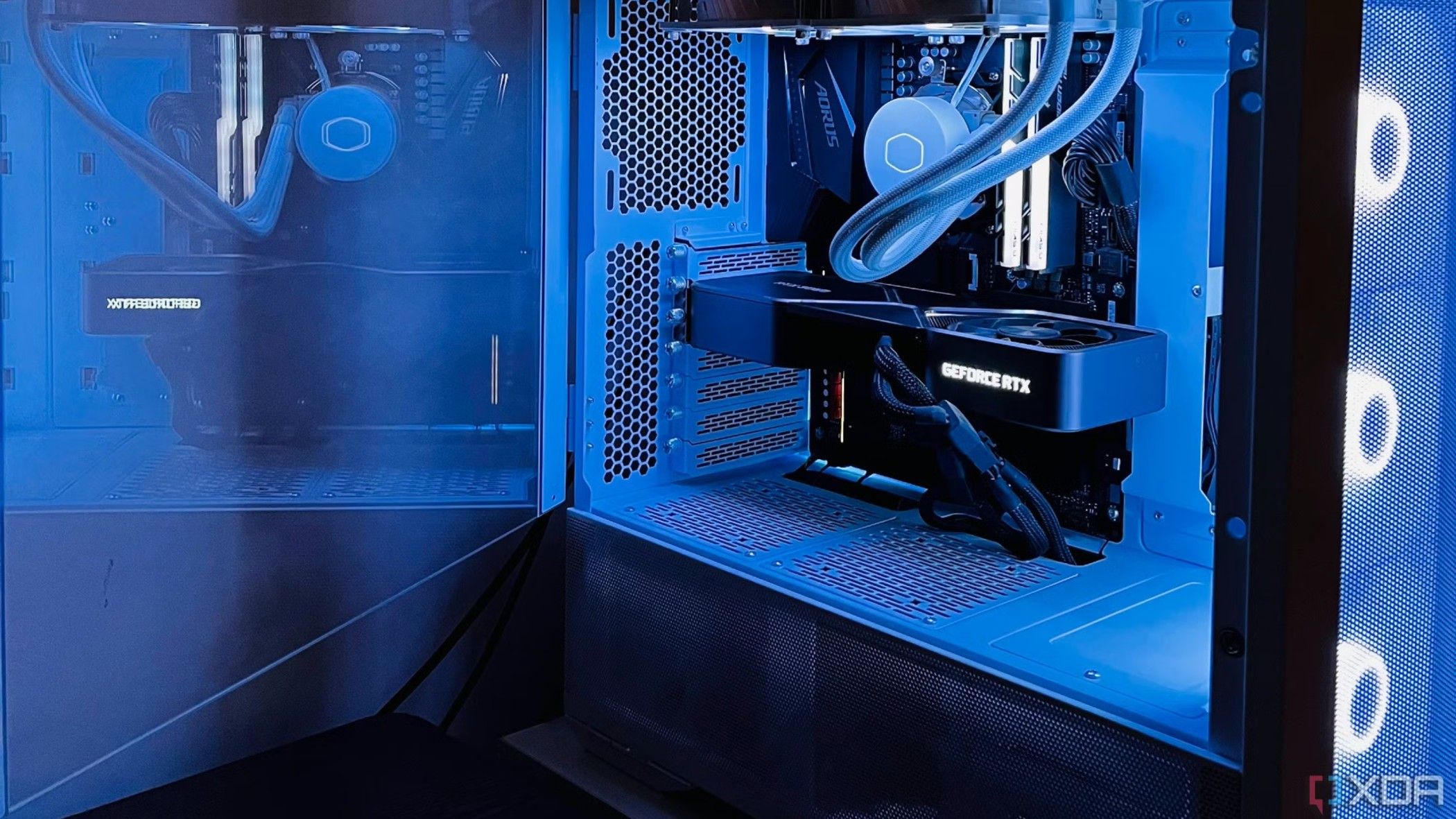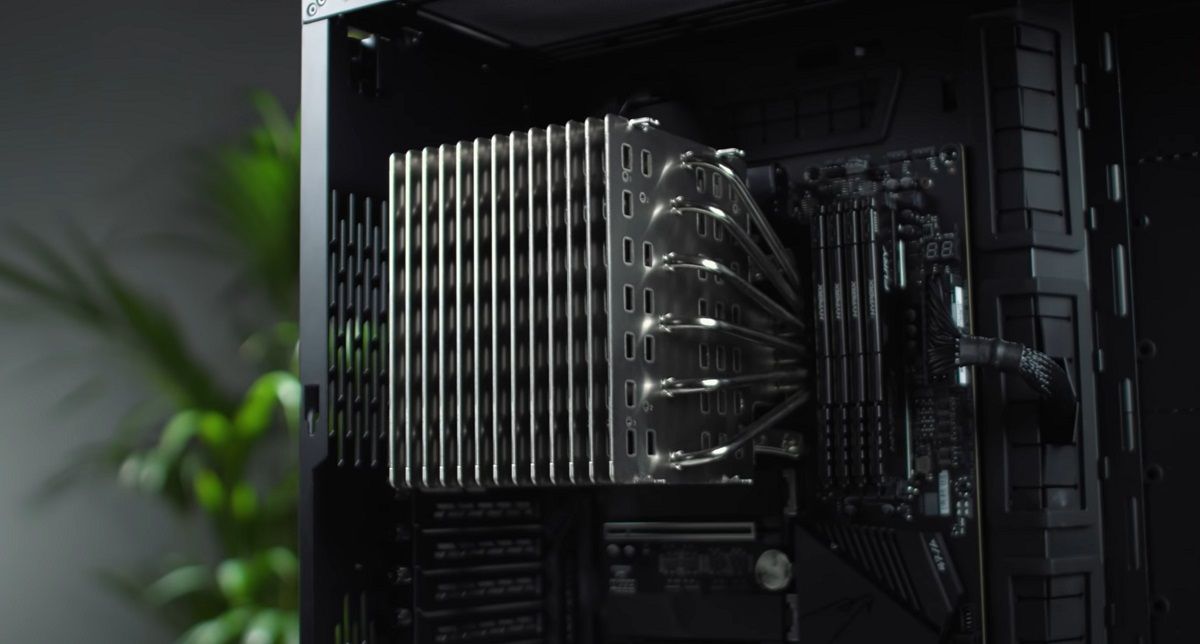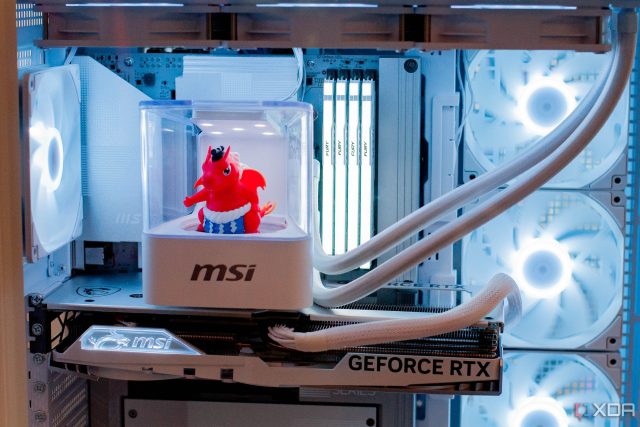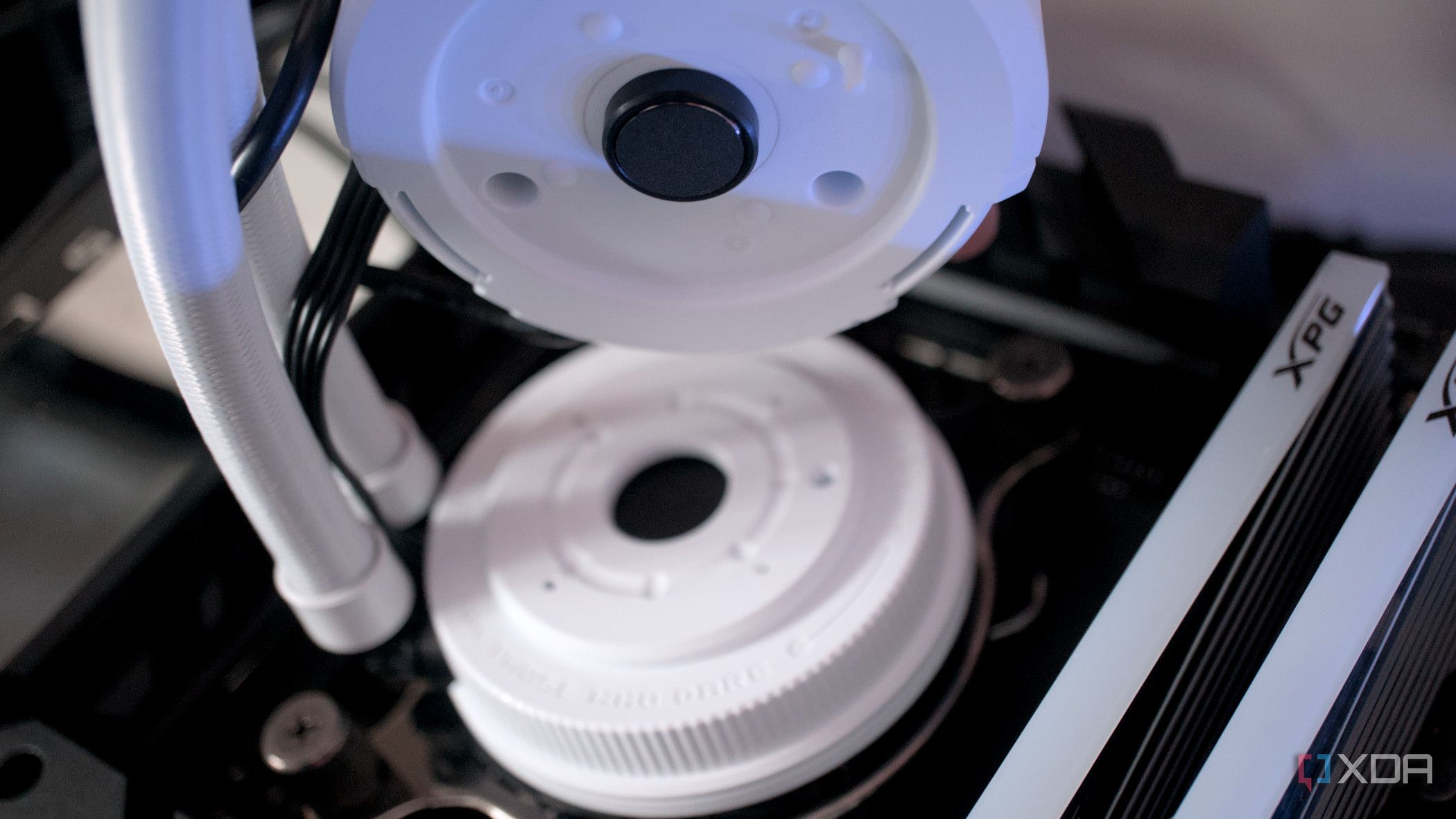The cooler you use for your CPU can greatly impact your PC’s performance, especially under demanding workloads. If you cheap out on it, you may encounter thermal throttling issues, which means you won’t achieve the peak performance from your CPU. But that doesn’t mean you have to overspend either. Many people, especially those new to PC building, have a tough time choosing between AIO liquid coolers and traditional air coolers. The flashy appearance and glowing RGB fans often push gamers toward AIO coolers, but how good are they really?
Sure, it’s easy to say that a high-end AIO will outperform most air coolers in thermal performance, but that doesn’t paint the whole picture. The right CPU cooler for your PC depends on various factors like your CPU, case, budget, intended workloads, and desired noise levels. Let’s discuss how effective AIO liquid coolers are and whether you should opt for one over a traditional air cooler for your PC.

Related
Switching from an air cooler to an AIO wasn’t the upgrade I expected
The upgrade from an air cooler to an AIO liquid cooler was a hollow one
A high-end 360mm AIO will outperform all air coolers
The clear winner if you only care about raw thermal performance
When it comes to raw cooling power, AIO coolers have an edge over traditional air coolers because water is better at absorbing and transferring heat than air. And since water also has a much higher heat capacity, an AIO liquid cooler will handle spikes in CPU temperature more effectively. So, when you push your CPU to its limits while playing games or rendering videos on your PC, an AIO cooler will manage the thermals better.
However, the performance of an AIO cooler depends significantly on the radiator size. The bigger the radiator, the better cooling performance you can expect from your AIO. That’s exactly why I recommend premium 360mm AIO coolers like the Arctic Liquid Freezer III for high-end PCs. A larger radiator provides more surface area for heat dissipation, which a traditional air cooler won’t be able to match. You can expect your CPU to run at least 5-10 degrees Celsius cooler with a 360mm AIO.
Be sure not to compromise when shopping for a 360mm AIO, though. Some of the cheaper ones have thin radiators and make poor contact with the CPU heat spreader, which can significantly impact the cooling performance. More importantly, they don’t tend to last as long since you’ll likely encounter pump failure sooner rather than later.
Beefy air coolers can match a 240mm AIO
Size matters for liquid cooling just as much as it does for air cooling
Not all cases have sufficient space to mount a 360mm radiator, which is why most people opt for 240mm and sometimes 280mm AIO liquid coolers. But I’d argue that if you can’t mount at least a 280mm AIO inside your case, you should seriously consider a high TDP air cooler instead. Some of the best air coolers in the market, like the Noctua NH-D15 G2 and Thermalright Peerless Assassin 120, offer thermal performance comparable to 240mm AIOs. If anything, the temperature difference is only about a couple of degrees Celsius.
Considering you can find 240mm AIOs today for less than $100, you may wonder what the point is in spending $150 on a Noctua NH-D15 G2. But I don’t expect you to spend that much money on an air cooler. You can find some great options like the Thermalright Peerless Assassin 120 for ID-Cooling Frozn A720 for under $70. So, if you’re on a strict budget, an air cooler with a beefy heatsink might just be the better choice. Not only do you get similar performance, but you’ll also have a far easier time installing it onto your CPU since there’s no radiator and tubing to deal with.
AIOs aren’t always quieter than air coolers
You won’t have to worry about pump noise with an air cooler
People often praise AIO liquid coolers for their lower noise levels, but I would argue that this depends on the workload. At idle, AIOs are generally quieter because the pump and radiator fans run at minimal speeds when the temperatures are low. However, under intensive workloads like gaming and rendering, the pump noise becomes noticeable and sometimes even annoying, depending on your AIO.
Since air coolers typically consist of a chunky heatsink and a pair of fans, you’ll only have to deal with fan noise. Even then, dual-tower air coolers can handle heavy loads fairly well without ramping up their fans too aggressively because the large heatsinks can absorb and dissipate heat efficiently enough. A 240mm AIO, on the other hand, will ramp up its fans quickly since there’s less surface area for heat dissipation. So, if you’re noise sensitive, I highly recommend getting an air cooler, especially if you can’t fit a 360mm radiator inside your case.
The bigger the AIO, the better
You may prefer AIO liquid coolers for their sleek aesthetics, but know that if the radiator isn’t big enough, you won’t experience that much of a temperature drop going from an air cooler. A 280mm AIO will fetch you a modest improvement in thermals, but if you want the best possible cooling performance, a 360mm or 420mm AIO might be your best bet. Radiator thickness is also a factor worth considering; most radiators have a thickness of 27mm or 30mm, but the ones from Arctic have 38mm radiators that help them top the benchmark charts.
However, suppose you don’t mind sacrificing thermals for slightly better noise levels. In that case, easier installation and hassle-free maintenance, a high TDP air cooler might be well worth your hard-earned money. Either way, if you’re in the market for a new CPU cooler, make sure you opt for a reputable brand and check user reviews so that you don’t have to worry about its longevity.

Related
Best CPU coolers in 2025
Buying the best CPU cooler is just as important as buying any other core component. Here are some of the best CPU coolers on the market.












